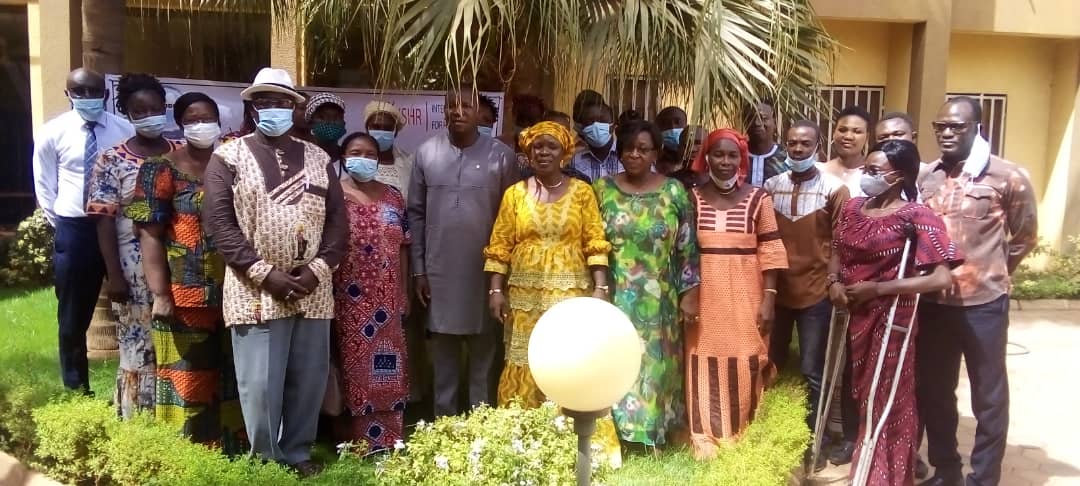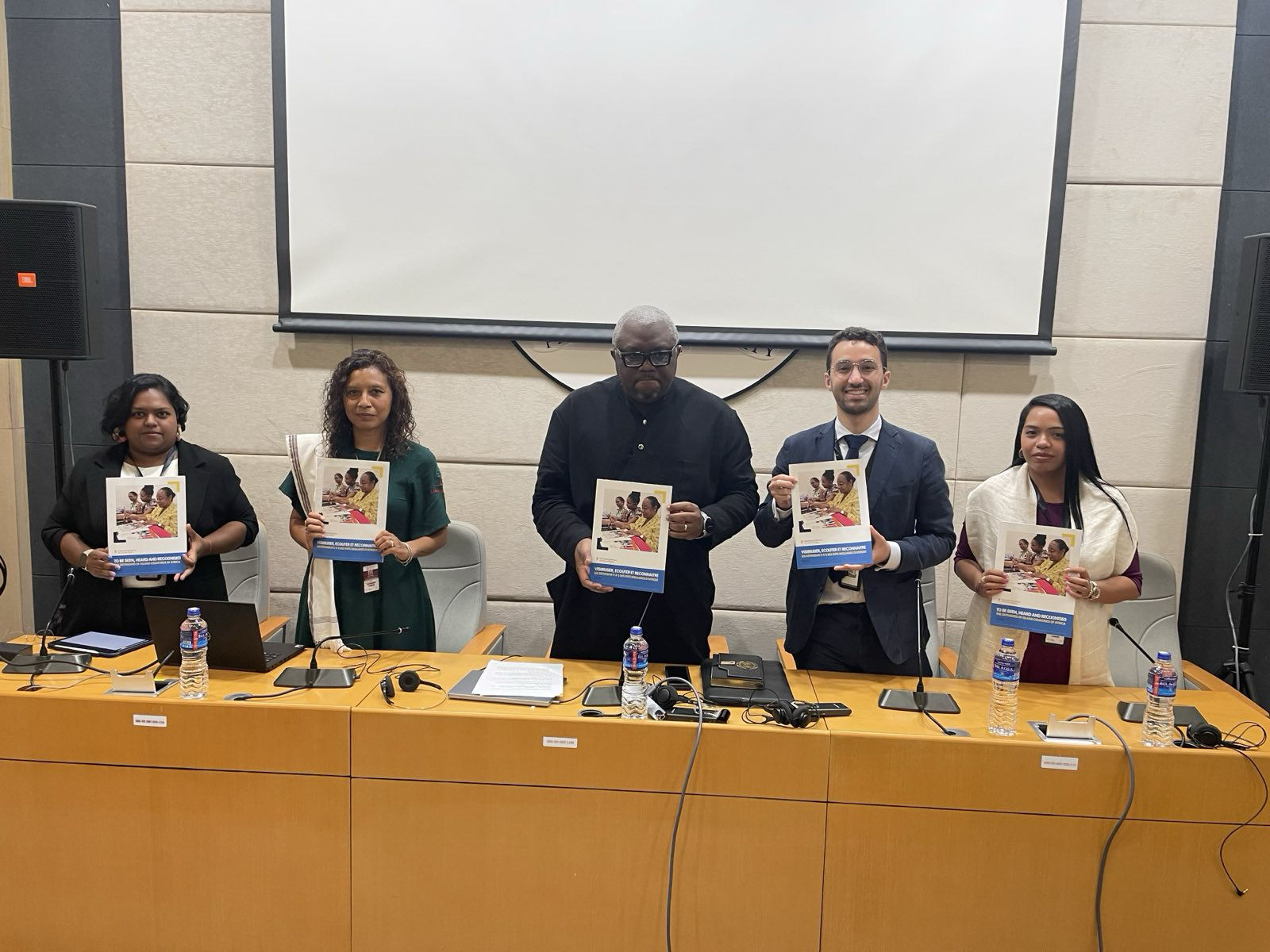
Egypt: Reform unjust vice laws, guarantee open civic space
During Egypt's UPR adoption at HRC59, Nora Noralla delivered a joint statement on behalf of ISHR, Cairo 52 and Middle East Democracy Center. Watch and read the full statement below.
Photo: Florence Ouattara/CBDDH

Operating in a context of persistent insecurity and aggravated by the Covid19 crisis, human rights defenders in Burkina Faso are exposed to many risks. The law on the protection of defenders and its implementing decree were adopted in 2018, but its implementation and use remain a challenge for defenders.
On 17th and 18th May, the National Human Rights Commission (NHRC), the Burkinabe Coalition of Human Rights Defenders (CBDDH) and ISHR co-hosted a workshop which took place in Ouagadougou. It was an opportunity to discuss the concrete implementation of the law by defenders, especially their appropriation of its content and sharing experience of its use. Due to the Covid-19 pandemic, and in compliance with social distancing, the workshop was attended by a limited number of participants joined by an online and physical panel.
During the opening ceremony Florence OUATTARA, coordinator of CBDDH, stated that “while the government of Burkina Faso should be applauded for adopting a national law protecting defenders and being an important pioneer on the issue in Africa, one thing is to adopt laws, another one is to ensure their implementation”. She concluded by inviting all civil society organisations working on issues related to the protection of human rights to fully invest and mobilise alongside the NHRC in order to ensure the effectiveness of the national defenders’ law.
Ouattara’s declaration was followed by a statement by the President of the NHRC, Rodrigue NAMOANO. “I hope that this workshop will allow participants to assess the effective implementation of law No. 039-2017/AN on the protection of human rights defenders, to identify the challenges preventing its full implementation and make recommendations “.
“The aim of this workshop is to really strengthen the understanding of the law by defenders in order to improve their protection. Having good knowledge of the law and how to use it is the first tool that will give more assurance to defenders to undertake their activities in a safe environment” added Adelaide ETONG KAME, Africa Program Manager at ISHR.
The two-days’ workshop revealed that the law remains mainly unknown to defenders and after three years since its adoption, there is still a need for continued and wider dissemination. Especially amongst groups working on corporate accountability, governance, protection of vulnerable groups, women’s rights and journalists who were mostly unaware of the existence of the law. This has clearly affected it implementation and use by defenders but they recognized that workshops, such as this one, during which defenders have the opportunity to review and learn more about the protection afforded to them in the law are helpful. Finally, the participants called for increased financial support from technical and financial partners for the dissemination and appropriation of the law by all actors, for advocacy with the authorities and to reinforce the protection of women human rights defenders.
“ISHR remains available and willing to support defenders and all actors involved in the implementation of the law, its implementing decree and the effective establishment of the mechanism on the protection of defenders in Burkina Faso” concluded Stephanie WAMBA, Africa Program Advocacy Consultant at ISHR.

During Egypt's UPR adoption at HRC59, Nora Noralla delivered a joint statement on behalf of ISHR, Cairo 52 and Middle East Democracy Center. Watch and read the full statement below.

The 59th session of the UN Human Rights Council (16 June to 9 July 2025) will consider issues including civil society space, climate change, sexual orientation and gender identity, violence and discrimination against women and girls, poverty, peaceful assembly and association, and freedom of expression, among others. It will also present an opportunity to address grave human rights situations including in Afghanistan, Belarus, China, Eritrea, Israel and oPt, Sudan, Syria and Venezuela, among many others. Here’s an overview of some of the key issues on the agenda.

On 4 May 2025, on the sidelines of the 83rd Ordinary Session of the African Commission on Human and Peoples’ Rights (ACHPR) in Banjul, ISHR officially launched its new report on the situation of human rights defenders in the African island states: Cape Verde, Comoros, Madagascar, Mauritius, São Tomé and Príncipe, and Seychelles.